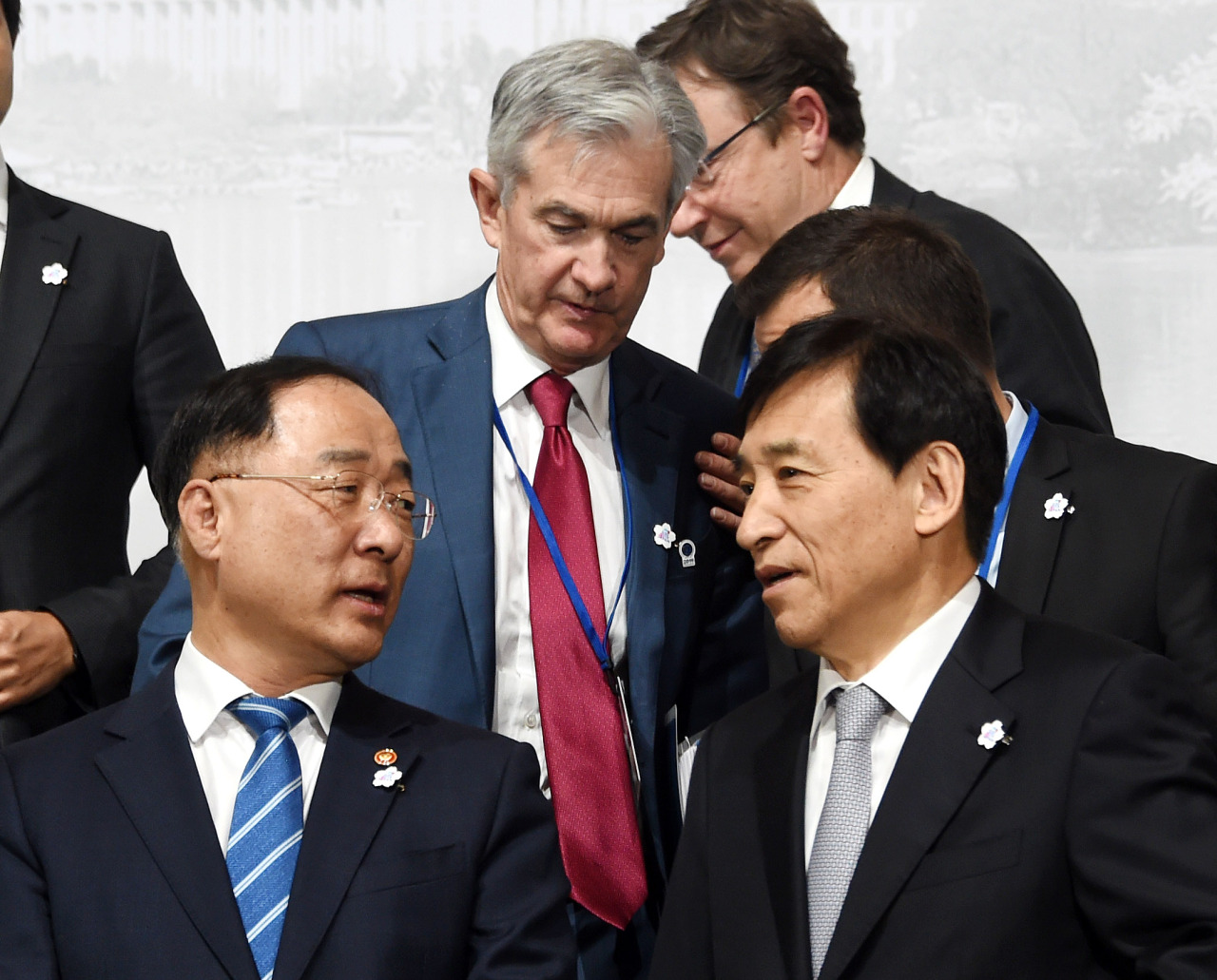Concerns are mounting that the central bank’s latest base rate cut may encourage easy borrowing and aggravate the country’s household debt problem.
But others suggest that the government’s enhanced loan regulations and slow economic growth pace will help prevent reckless borrowing.
The total balance of household credit as of the end of June this year stood at 1,556.1 trillion won ($1,318 billion), according to data released by the Bank of Korea on Sunday.
Household credit is a comprehensive measurement for household debt that includes loans from financial institutions, as well as unsettled credit card payments.
Last Wednesday, the BOK’s rate-setting Monetary Policy Board lowered the policy rate by a quarter of a percentage point to match its lowest level ever, 1.25 percent.
Conventionally, a base rate cut is expected to boost consumption, increase consumer prices and alleviate the financial burdens that households face. It has also been cited as a key reason for increased household debt.
But the BOK’s previous rate cut, in July this year, turned out to have little impact on household debt during the months that followed, data showed.
The household debt balance in August stood at 6.3 trillion won, down 300 billion won from a year earlier, while the corresponding figure in September was 3.1 trillion won, down 3 trillion won from a year earlier.
The slowing pace at which household debt increased was largely attributable to the government’s strengthened mortgage regulations, which entail lower ceilings for the loan-to-value and debt-to-income ratios.
 |
Deputy Prime Minister and Finance Minister Hong Nam-ki (left) and Bank of Korea Gov. Lee Ju-yeol attend the group photo session at the Group of 20 summit for finance ministers and central bank governors on Friday. (Ministry of Economy and Finance) |
The lackluster economic growth outlook was seen as another factor in discouraging excessive borrowing.
Deputy Prime Minister and Finance Minister Hong Nam-ki has officially said the country’s growth forecast for this year will be lowered to the 2-2.1 percent range.
“This year’s economic growth will be about the same level forecast by the International Monetary Fund and the Organization for Economic Cooperation and Development,” Hong said in a press conference held Friday, local time, in Washington.
The IMF recently revised Korea’s growth pace to 2 percent, down 0.6 percentage point from its earlier estimation. The OECD slashed its growth forecast to 2.1 percent, down 0.3 percentage point.
Hong’s remarks were delivered during his trip to Washington, on the sidelines of the Group of 20 ministerial summit and the annual meetings of the IMF and the World Bank.
The fiscal chief had acknowledged that the present growth outlook of 2.4-2.5 percent would be hard to achieve, but this was the first time he cited actual figures.
By Bae Hyun-jung (
tellme@heraldcorp.com)








